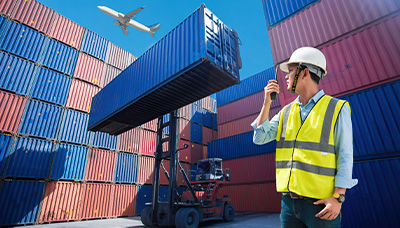
Social Compliance Audits
All-Inclusive – Inspection Service All Over China
Social compliance has become more significant in the manufacturing and trading worlds. Key stakeholders pressure businesses to ensure that their supply chains are free of problems like unfair disciplinary practices, child labor, and more. This pressure is justified, of course.
It might initially seem like a straightforward issue to resolve. But while examining your own internal procedures is simple, dealing with suppliers makes it more difficult. in particular, if their production facilities are located thousands of miles away from you.
We’ll examine compliance in this manual and describe the social compliance audit process.
The Definition of Social Compliance
Social compliance refers to the actions and procedures a business takes to guarantee the security, equality, and fair treatment of its employees as well as the quality of the working environment and environmental awareness.
However, it also broadens to take into account the local communities and areas that surround a company’s services as well as its supply chain and distribution operations.
What Are a Few Illustrations of Social Responsibility and Compliance?
In order to guarantee that a company’s goods or services are produced ethically, in accordance with labor rights, fair labor laws, harvesting, conflict minerals, and environmental sustainability standards, a set of policies and practices known as “social compliance” are used. As such social compliance may include:

- utilizing environmentally friendly, pollutant-free, and sustainable materials and production techniques.
- giving workers a secure environment and working conditions.
- giving workers a fair wage.
- Never hire children.
What Distinguishes Social Compliance from Social Responsibility?
There have differences between Social compliance and social responsibility, its changeable but they don’t match. Simply put, social compliance refers to the set of procedures that a company has in place to make sure that it is abiding by all applicable laws and regulations. Social responsibility, on the other hand, is more focused on a company’s moral obligation to society and the environment.
An audit of social compliance is what?
An audit of social compliance, also called a social audit or ethical audit looks at more than just the output of your supply chain. A social compliance auditor, for instance, looks beyond a production line inspection to evaluate the working conditions of a factory that adheres to a strict set of standards and procedures.
Typically, the business must demonstrate that it operates in accordance with all applicable laws, as well as certain social and ethical obligations. A social compliance auditor looks into all of these issues and more to give your supply chain operation peace of mind.
Examples of global benchmarks for social compliance audits are provided below:
- An important social certification standard is SA 8000.
- Audit of Ethical Trade by Sedex Members
- RJC, or the Responsible Jewelry Council
- ILO’s Initiative for Ethical Trading
An SA8000 Audit: What Is It?
An SA8000 audit is one of the most frequent social compliance checks. The Social Accountability International organization’s SA8000 standard criteria, which are widely accepted, are followed in this audit.
The standard specifies requirements for the avoidance of child labor, as well as for health and safety, discrimination, compensation, and other issues.
An audit of social compliance evaluates what?
An internal employee or unbiased outsider can both serve as social compliance auditors. The auditing process can vary because the auditor usually evaluates the company in accordance with the aforementioned international standards.
Unacceptable conditions that an audit may reveal include unfair pay, harassment, poor health and safety, child labor, excessive working hours, and many other things.
An ethical auditor will complete a social compliance audit and produce a report with images that details their findings. Among the things HQTS’s social compliance audit keeps an eye on are the following:
- laws pertaining to child labor
- mandatory labor laws
- Anti-discrimination laws
- Regulations governing the minimum wage
- living conditions for employees
- hours of operation
- Pay for overtime
- social advantages
- Safety and wellbeing
- environmental protection
How Do You Conduct a Social Compliance Audit?
The list of social compliance is condensed in the paragraphs that follow. You can follow these steps to get a sense of how your company is doing in terms of meeting the necessary standards.
- Examine the ethics and behavior codes of your company.
- The people or organizations that are impacted by the operation or success of your company should all be listed as “stakeholders” in your company.
- Identify the social needs, such as safer streets, lower crime rates, and a decrease in emigration, that have an impact on all of your company’s stakeholders.
- Create a system for identifying social targets, gathering information on a problem, putting strategies into action to improve the situation, and reporting the outcomes of those efforts.
- Contract with a social responsibility-focused independent auditing company; meet with representatives of the audit company to go over your efforts and the need for an impartial review.
- Give the auditor time to complete the independent verification process, and then compare his findings to what the functional group in charge of your social responsibility initiative has observed internally.
What will happen if a company doesn’t comply?
A business may not be able to conduct certain operations if it fails a social compliance audit until the problem is fixed. Once everything has been resolved, the business must also prove that it complies. If a business fails a social compliance audit, corrective action will be taken, and reports will show a supplier’s or factory’s history of failing audits.








